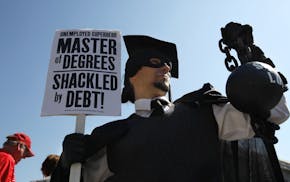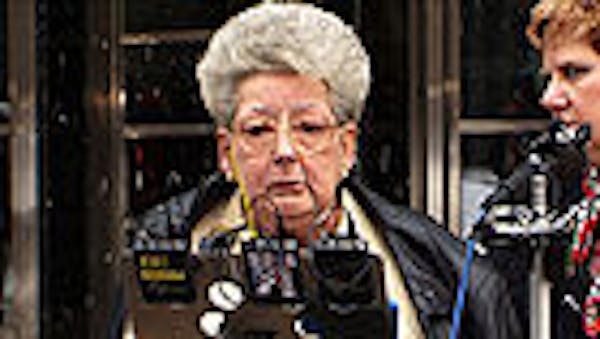Long after Friday's sentencing of Denny Hecker to 10 years in prison, U.S. Chief Judge Michael J. Davis will be the one remembered for first throwing the former auto magnate in jail, where he has sat since October.
Some crooks make a handsome living dipping their hands into the pockets of individuals. Then there are the more ambitious ones like Hecker, who try to con the system.
In family court, Hecker tried to hide assets from his soon-to-be ex-wife. In bankruptcy court, he withheld or altered documents and lied to the court. That led to criminal charges.
A scary prospect for Hecker, the father of four? Not apparently, given how he kept finding and spending new sources of cash even after pleading poverty and being assigned court-appointed attorneys.
By Oct. 18, it seemed Davis had decided he'd had enough.
The hearing was supposed to be routine. Hecker had already pleaded guilty to two counts of bankruptcy fraud and conspiracy, and now he wanted permission to hire Bill Mauzy to represent him for his sentencing.
Instead, he found himself in the cross-hairs of a judge bent on getting some answers.
"This is not a game that we're playing here," Davis said to one of Hecker's court-appointed attorneys. "You're coming to me saying that he doesn't have any funds and I'm supposed to just accept that as a fact and then knowing that he has a history of avoiding and lying or at least misrepresenting the fact and having funds that he's been using."
Bill Michael, a white-collar criminal defense attorney in Minneapolis, described Davis as "very fair and very professional."
"The lesson that comes out of this is that individuals should not try the patience of federal judges," Michael said.
Until Oct. 18, most of the hearings and motions in Hecker's criminal case had been handled by a federal magistrate judge. It's not clear why Davis stepped in, but the tenor definitely shifted.
That was clear almost from the beginning, when Davis challenged Mauzy's request to keep his fee under seal, or private.
"Do you wish to argue, Mr. Mauzy, before I rule against you?" Davis asked.
"Judge, I've learned in my years of experience appearing in front of you, that I sit down at that moment," Mauzy said.
Friday, Davis surrendered his 15th-floor courtroom to accommodate the crush of media, family and onlookers who were there for Hecker's 10 a.m. sentencing.
Davis had other business to attend to. At 9 a.m., he heard a motion to dismiss a patent infringement lawsuit and ruled in favor of the defendant. At 10:40 a.m., he accepted a guilty plea from a convicted felon charged with unlawful possession of a handgun and ammunition.
By then, Hecker's sentencing hearing was underway. He pleaded for mercy, his voice cracking as he maintained that he was a good person.
By all accounts, Hecker was a persuasive salesman. He sold thousands of cars. He persuaded carmakers to lend him hundreds of millions of dollars. He convinced friends and family members to commit fraud on his behalf. His attorneys vouched for his kindness and essential goodness.
When his world began to crumble, Hecker never stopped trying to sell his version of events. He was a victim: of greedy car companies, of an overzealous bankruptcy trustee, of a cruel public. Even after pleading guilty, Hecker still managed to wheedle cash and favors from friends and acquaintances.
But in October, the consummate salesman faced a federal judge who wasn't buying anything he tried to sell.
"Every time I ask a question you try to slip through them," Davis said. "Sitting in a jail cell will help you remember."
ericw@startribune.com • 612-673-1736

Wieffering: Time to get over debit card fees
For Thrivent and others, warnings were there

With billions in sales, some co-ops are big business

